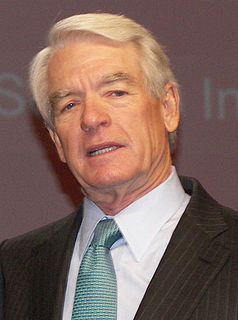A Quote by Noam Chomsky
You can read it in history books now, but they often suppress the fact that the U.S. government tolerated [Nazi]. It's really remarkable because they claim that [Franklin] Roosevelt was impeded by the Neutrality Act. On the other hand, he bitterly condemned a Mexican businessman for sending several guns to the Republic. If you look back, oil was the one commodity that [Francisco] Franco could not receive from the Germans and the Italians, so that was quite significant.
Quote Topics
Act
Back
Because
Books
Businessman
Claim
Commodity
Condemned
Could
Fact
Francisco
Franco
Franklin
Germans
Government
Guns
Hand
History
History Books
Italians
Look
Mexican
Nazi
Neutrality
Now
Often
Oil
Other
Quite
Read
Really
Receive
Remarkable
Republic
Roosevelt
Sending
Several
Significant
Suppress
Tolerated
Related Quotes
There's a strong nativist tradition - saying, "we have to protect ourselves" - that comes from the founding of the country. If you read Benjamin Franklin, who was one of the leading figures of the Enlightenment in the United States and the most distinguished representative of the movement here, he actually advised that the newly founded republic should block Germans and Swedes because they were too "swarthy" - dark.
After the signing of the Constitution, Benjamin Franklin was asked by a woman on the street, "What have you given us, sir?" Franklin Responded, "A Republic, if you can keep it." A critical moment in history has come; our Republic is in jeopardy. Can we keep it? If the answer to that question, as I fear, is "no," then we have no one to blame but ourselves.
It is a remarkable fact that we can never read or hear of the labors which our Lord and Savior Jesus Christ performed, without taking pleasure in it, while, on the other hand, there is nothing so interesting in the life and history of any other individual but what by hearing or reading it time and time again we become tired of it.
If you look back at history, [Dale ] Carnegie highlighted the need for libraries to be a place where everyone could go to read if you didn't have access to books. Philanthropy can be a place that'll take a risk or point to areas to make sure they are the right government investments to reduce inequalities.
Franklin Roosevelt is one of the great leaders because he does get along with other people. He makes this huge effort. He's a very charming man. He tries to bring Joseph Stalin and Winston Churchill into this tripartite agreement to run the world. And he really was close. If he hadn't died in April of '45, the whole history would be different.
I'm always reading many books at a time. It might be quite unorthodox, but what I do is, since I'm always surrounded with books, I'll read a page of physics, and then I'll read a chapter of a novel that I really love, and then I'll say, "Oh well, what does that mixture do in my head?" I adore reference books. I love encyclopedias. I also like just going back to original texts, because a lot of these self-help books today.

































